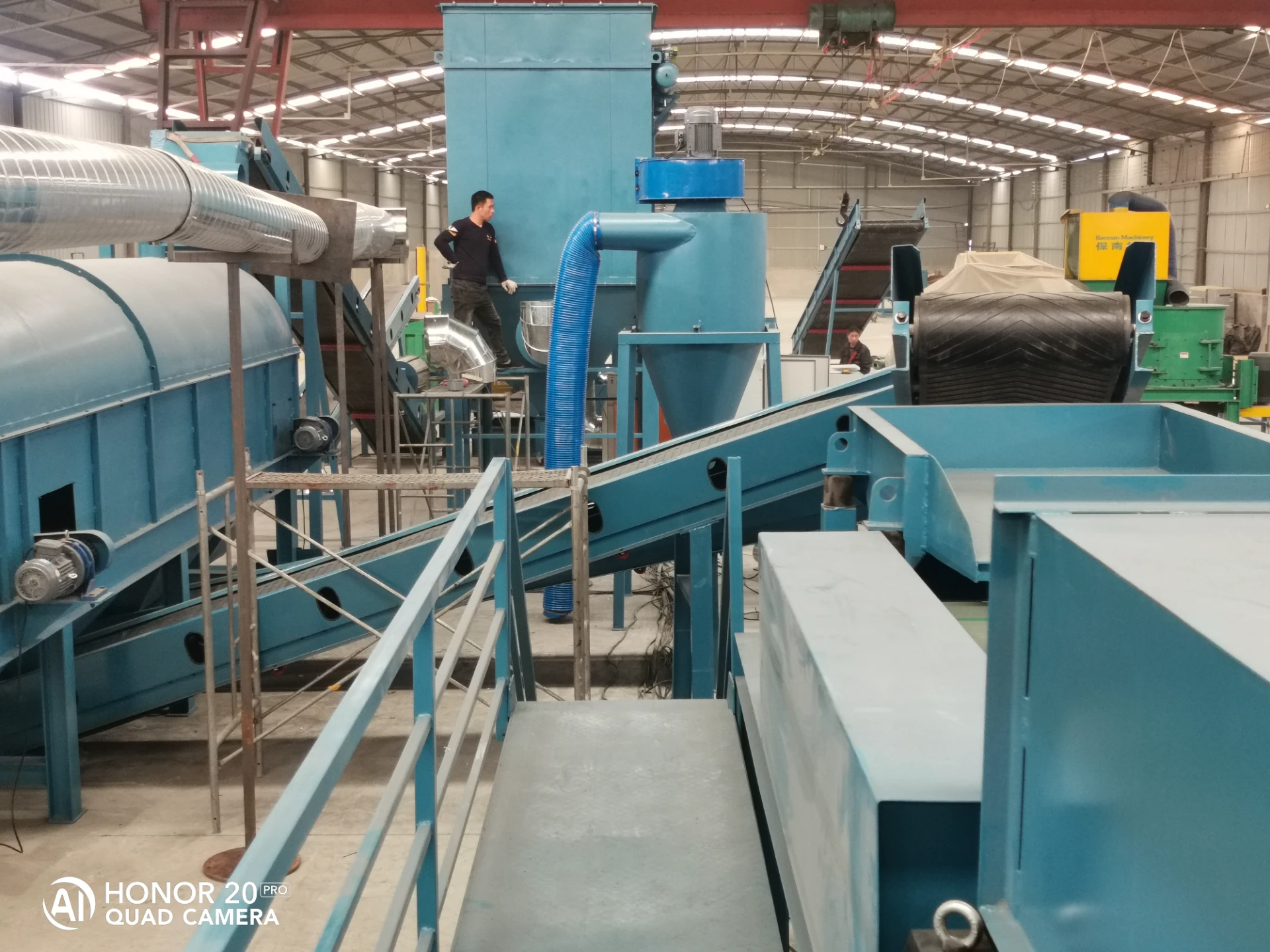

Nov . 22, 2024 05:31 Back to list
The Essential Role of Metal Shredders in the Recycling Industry
In today’s world, where sustainability and recycling are more critical than ever, the role of metal shredders has become increasingly significant. These powerful machines are designed to process and recycle various types of metal waste, transforming it into valuable raw materials that can be reused in manufacturing processes. In this article, we will explore the importance of metal shredders, their working mechanisms, and the impact they have on the environment and industry.
What is a Metal Shredder?
A metal shredder is a heavy-duty machine used to break down scrap metal into smaller, more manageable pieces. These machines are equipped with sharp blades, powerful motors, and durable construction to handle tough metal materials, including steel, aluminum, copper, and more. The primary function of a metal shredder is to reduce the volume of scrap metal, making it easier to transport and recycle.
How Do Metal Shredders Work?
Metal shredders operate using a two-fold mechanism cutting and shredding. Initially, the metal material is fed into the shredder, where it is grasped by rotating blades. These blades rotate at high speeds, effectively cutting and shredding the metal into smaller pieces. The shredded metal is then sorted based on size, weight, and type, often using additional machinery like magnetic separators to separate ferrous materials from non-ferrous ones.
Once the metal has been shredded and sorted, it can be baled or packed into containers, ready for further processing. This process not only makes metal easier to handle but also significantly increases its economic value. Recycling shredded metal usually involves melting it down and reforming it into new products, a process that requires substantially less energy than producing metal from raw ore.
Environmental Benefits of Metal Shredders

The environmental benefits of using metal shredders in the recycling industry cannot be overstated. Recycling metals reduces the need for mining and extraction of new raw materials, which contributes to deforestation, habitat destruction, and pollution. By utilizing metal shredders, industries can ensure that valuable materials are kept within the recycling loop, significantly lowering their carbon footprint.
Moreover, the recycling of metals leads to a substantial decrease in energy consumption. For instance, recycling aluminum saves about 90% of the energy required to produce new aluminum from bauxite ore. This energy conservation directly translates to fewer greenhouse gas emissions, highlighting metal shredders' essential role in combating climate change.
Economic Impact
The economic implications of metal shredders are also significant. The ability to recycle metals creates jobs within the recycling and manufacturing sectors. From scrap collection to processing and eventual resale, the entire recycling chain contributes to job creation and economic growth. Furthermore, recycled metals often come at a lower cost compared to new materials, allowing manufacturers to decrease production costs and offer more competitive prices in their markets.
The demand for metal shredders is also driven by the increasing volume of scrap metal generated globally. With the rise in construction, automotive manufacturing, and electronics production, industries are continuously seeking effective ways to manage waste. Investing in metal shredders ensures that companies stay ahead in an increasingly competitive market while promoting sustainability.
Conclusion
In conclusion, metal shredders play a crucial role in modern recycling and waste management processes. By efficiently breaking down scrap metal, these machines facilitate the recycling of valuable resources, minimize environmental impacts, and contribute to economic growth. The transition towards a more sustainable future hinges on the continued innovation and utilization of metal shredders, as they help create a circular economy and promote responsible consumption. As we move forward, it is vital for industries, governments, and communities to recognize the significance of these machines and support recycling initiatives that benefit both the planet and society at large.
Latest news
Troubleshooting Common Eddy Separator Problems
NewsJul.04,2025
The Role of Metal Recycling Plants in Circular Economy
NewsJul.04,2025
The Impact of Recycling Line Pickers on Waste Management Costs
NewsJul.04,2025
Safety Features Every Metal Shredder Should Have
NewsJul.04,2025
How Industrial Shredders Improve Waste Management Systems
NewsJul.04,2025
How Cable Granulators Contribute to Sustainable Recycling
NewsJul.04,2025